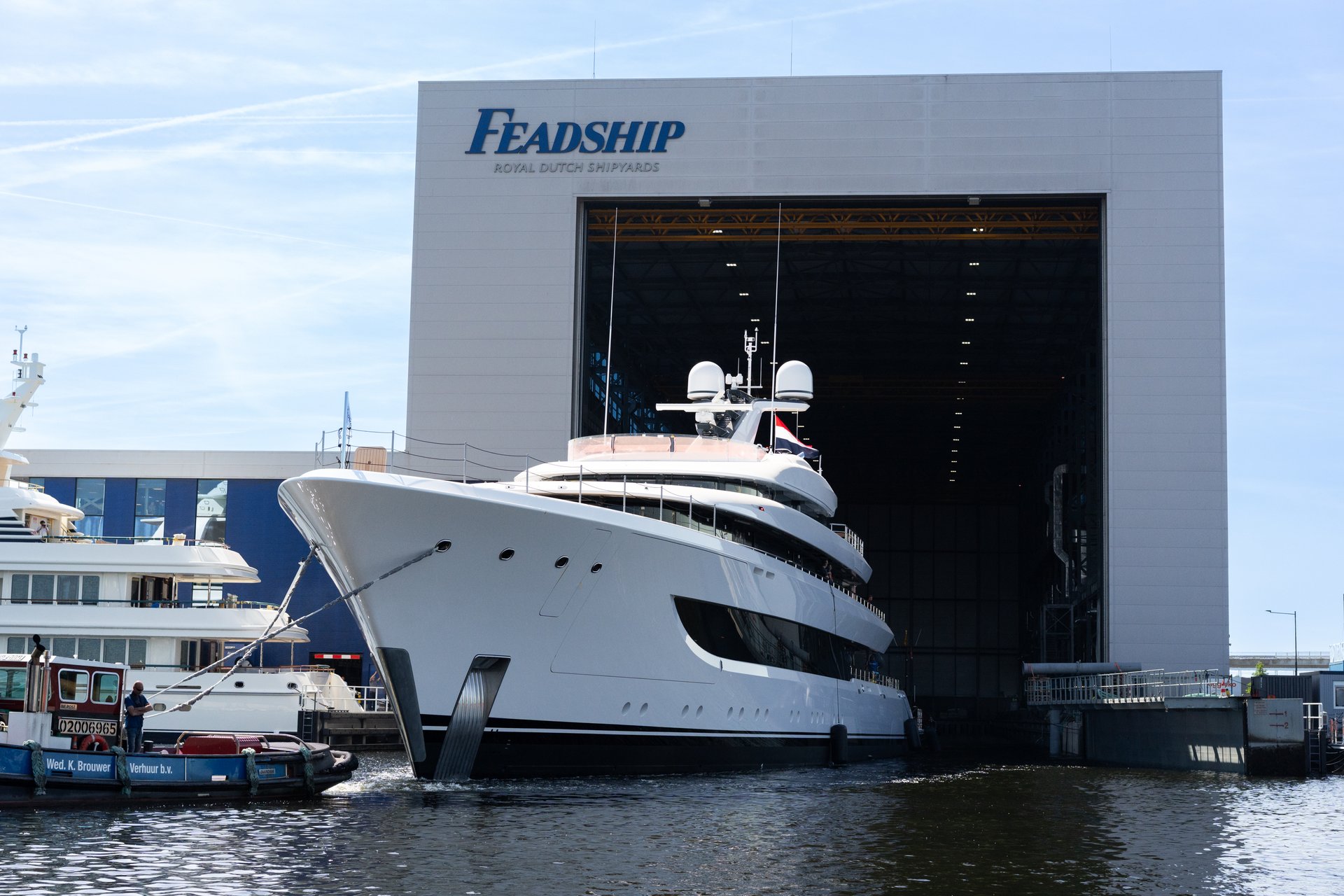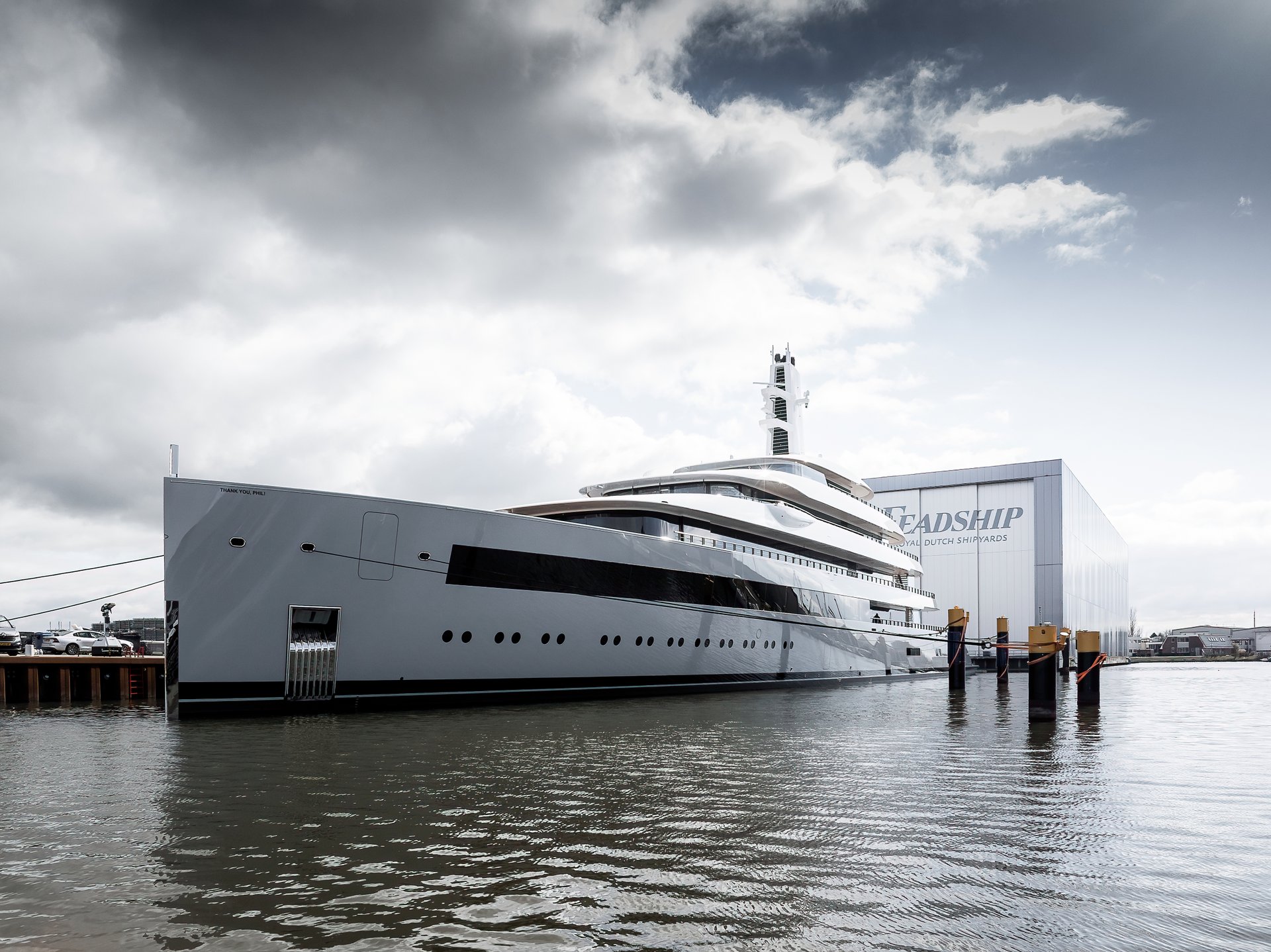Pioneering GTL fuel test on Feadship Kiss

Feadship recently completed what we believe to be the very first sea trial of gas-to-liquids synthetic diesel onboard a superyacht. The owner and captain of the Feadship Kiss were pleased to be part of an innovative experiment that promises much for the future.
Feadship first heard about this new fuel system when we were designing the Aeon concept in 2009. Gas-to-liquids (GTL) synthetic diesel, developed by Shell, proved to be a highly suitable energy carrier for the combined reformer/fuel cell installation envisioned for the year 2020. Unfortunately, GTL was not commercially viable at that time. In fact, Shell’s large GTL facility in Qatar only started production in 2011, and pure GTL diesel fuel has only recently become available on the market. The Netherlands is a pioneer in this respect, and is leading the way with a worldwide introduction.
Exploring potential
The characteristics that make GTL an interesting option for conventional combustion engines originate in the way it is produced. Natural gas is broken down into syngas, from which all different GTL products are synthesised. As syngas contains very few contaminants, the resulting fuel is pure in its composition – free from sulphur, for instance – and gives a highly controllable burn. Another interesting factor is that syngas can also be generated by gasifying biomass, allowing for an operation that is close to CO2 neutral.
An R&D project was set up on the recently launched Kiss to explore the possibility of switching to GTL as the fuel for all Feadship sea trials. One of the generators was run on GTL and diesel, whilst all emissions, noise and vibrations and fuel consumption were measured. The test analysis showed a reduction in emissions of up to 30% for PM (soot) and HC (unburnt fuel, smell) and about 10% in NOX and CO2. Such significant savings are well worth the slightly higher cost price (about 10%). Noise values in the engine room and vibration levels were not found to have changed significantly.
Forward thinking
Many people from Feadship, yacht crew and third parties were involved in making this test happen, including Oliver Varley captain of Kiss. “It has been obvious for some time that the industry needs to look at ways of becoming more efficient,” Oliver says. “As we develop more and more systems to meet this need, the fuel we use to run our vessels should evolve at the same rate.
“All owners wish to use their yachts in a clean environment, and yards and crew have a responsibility to minimise any negative effects vessels have on their surroundings. We commend Feadship for its forward thinking and are happy to have our vessel be a part of it.”
Yards and crew have a responsibility to minimise any negative effects vessels have on their surroundings.
A healthier environment
Paul Kerkvliet, who is currently doing his engineering thesis on future fuels at the Feadship De Voogt Naval Architects knowledge centre, was involved in the organisation, execution and analysis of the test. “As a mechanical engineer in the making, I’m a big fan of technological innovation. The GTL test fitted perfectly within the subject of my final thesis, which focuses on future fuels.
“The test went entirely according to plan, with great results and GTL has definitely proved to be a fuel that can contribute to a healthier environment. Given that GTL is compatible with basically every diesel engine, the switch will be really easy. I hope the introduction of this fuel on yachts by Feadship will encourage other owners to do the same.”





